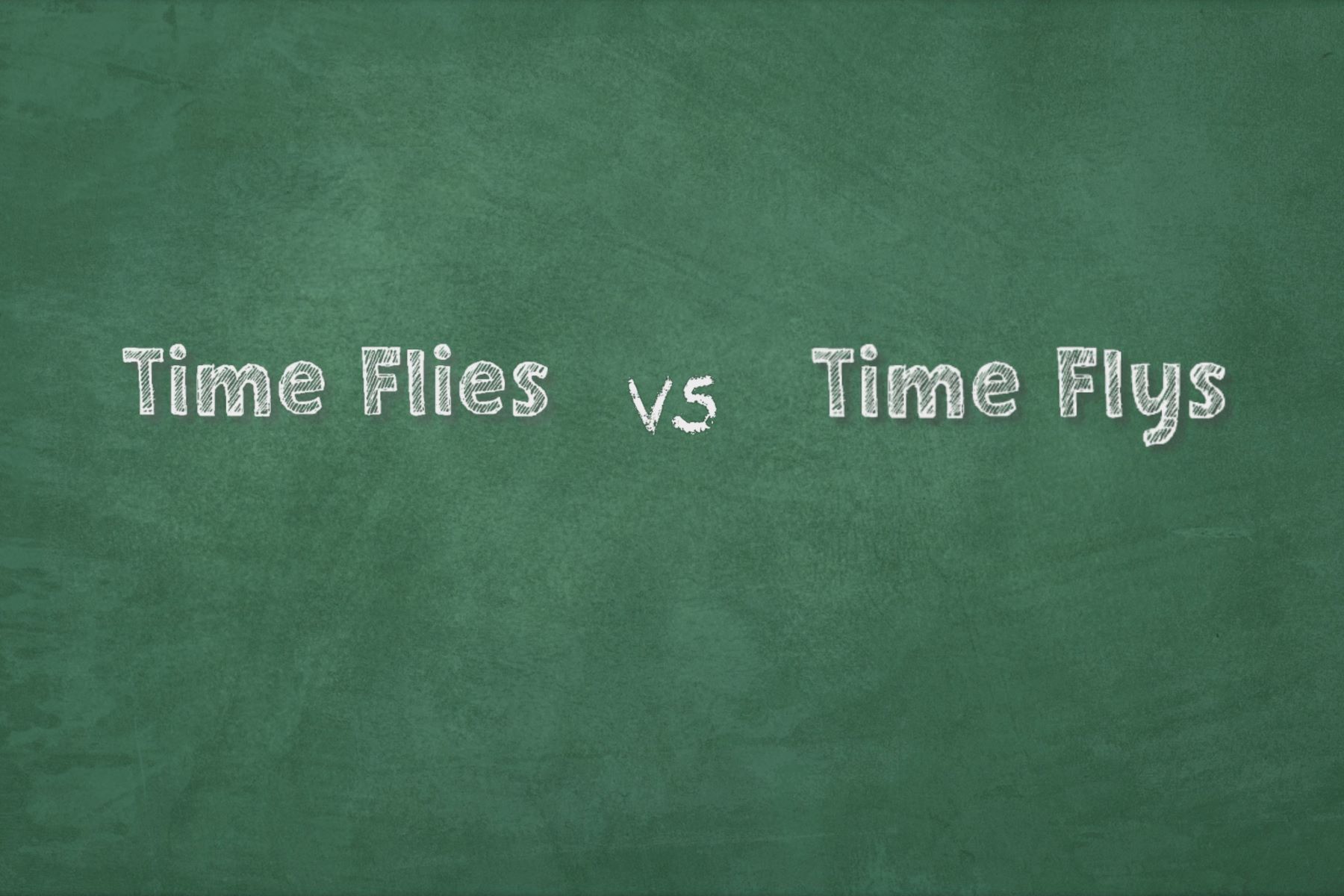Home>Language and Grammar>The Surprising Reason We Say “No Problemo” Instead Of “No Problema”


Language and Grammar
The Surprising Reason We Say “No Problemo” Instead Of “No Problema”
Published: January 19, 2024
Discover the fascinating linguistic nuances behind the phrase "no problemo" and its usage in language and grammar. Explore the surprising reasons for its prevalence over "no problema."
(Many of the links in this article redirect to a specific reviewed product. Your purchase of these products through affiliate links helps to generate commission for Regretless.com, at no extra cost. Learn more)
Table of Contents
Introduction
Language is a fascinating aspect of human communication, constantly evolving and adapting to reflect the cultural, social, and historical influences of the communities that utilize it. One intriguing phenomenon within language is the incorporation of foreign words and phrases into everyday speech. This integration often occurs seamlessly, with individuals adopting these linguistic elements without a second thought. Take, for example, the phrase "No Problemo," which has effortlessly found its way into the English lexicon despite being rooted in Spanish.
The incorporation of "No Problemo" into the English language is a testament to the dynamic nature of linguistic evolution. It serves as a reminder that language is not static but rather a living entity that shifts and transforms over time. In exploring the reasons behind the integration of this phrase, we gain insight into the intricate interplay between language, culture, and human interaction. Let's embark on a journey to unravel the surprising reason behind why we say "No Problemo" instead of "No Problema."
The Influence of Pop Culture
Pop culture wields a profound influence on language, often serving as a catalyst for the adoption of foreign phrases and expressions. In the case of "No Problemo," its integration into English can be attributed, in part, to its widespread use in popular media. This phrase gained significant traction following its inclusion in the 1991 blockbuster film "Terminator 2: Judgment Day." The character T-800, portrayed by Arnold Schwarzenegger, popularized the phrase as part of his iconic dialogue, imprinting it into the cultural consciousness.
The film's immense popularity ensured that "No Problemo" became firmly embedded in the vernacular of English speakers. Its repeated use in various contexts within the movie solidified its association with a laid-back, nonchalant attitude, further contributing to its appeal. As a result, individuals began incorporating it into their own speech, drawn to its casual and carefree connotations.
Moreover, the influence of pop culture extends beyond the silver screen, permeating various forms of entertainment, including music, television, and literature. When influential figures, such as musicians or celebrities, embrace and popularize foreign phrases, they often become ingrained in everyday language. This phenomenon is evident in the widespread adoption of "No Problemo," propelled by its resonance in popular culture.
The pervasive nature of pop culture ensures that phrases and expressions introduced through these channels permeate society, transcending linguistic barriers. As a result, the phrase "No Problemo" transcended its Spanish origins, seamlessly integrating into English discourse. This linguistic assimilation underscores the powerful impact of pop culture on language, shaping the way individuals communicate and express themselves.
In essence, the influence of pop culture serves as a driving force behind the incorporation of foreign phrases like "No Problemo" into everyday speech. Its ability to permeate various facets of society, from entertainment to social discourse, cements its role in shaping linguistic trends and fostering cross-cultural exchange. Consequently, the pervasive presence of pop culture continues to shape and enrich the dynamic tapestry of language, perpetuating the seamless integration of diverse linguistic elements into the English lexicon.
Linguistic Evolution
Linguistic evolution encapsulates the organic process through which languages undergo transformation, adaptation, and diversification over time. It is a dynamic phenomenon characterized by the assimilation of new words, phrases, and linguistic elements from diverse sources. The integration of "No Problemo" into the English language exemplifies the intricate nature of linguistic evolution, showcasing the fluidity and adaptability of language in response to cultural influences.
The evolution of language is inherently intertwined with sociocultural dynamics, reflecting the interplay between different communities and their modes of expression. In the case of "No Problemo," its journey from Spanish to English epitomizes the fluidity of linguistic boundaries and the capacity of language to transcend geographical constraints. This evolution underscores the inherent malleability of language, which enables it to absorb and assimilate elements from diverse cultural contexts.
Furthermore, linguistic evolution is propelled by the interconnectedness of global communities, facilitated by advancements in communication and technology. The widespread dissemination of ideas, media, and cultural artifacts across borders has engendered a rich tapestry of linguistic exchange. As a result, foreign phrases and expressions, such as "No Problemo," seamlessly permeate linguistic landscapes, reflecting the interconnected nature of modern society.
Moreover, linguistic evolution is a testament to the adaptability and resilience of language in the face of cultural amalgamation. The assimilation of foreign phrases into everyday speech underscores the capacity of language to embrace diversity and integrate disparate linguistic elements. This process not only enriches the linguistic repertoire of a language but also fosters cross-cultural understanding and appreciation.
The evolution of language is an ongoing narrative, shaped by the collective experiences, interactions, and exchanges of diverse communities. As languages continue to evolve in response to the dynamic interplay of cultural influences, the integration of foreign phrases like "No Problemo" serves as a poignant reminder of the ever-changing nature of linguistic expression.
In essence, linguistic evolution embodies the continuous transformation and adaptation of language, reflecting the intricate interplay of cultural, social, and historical forces. The integration of "No Problemo" into the English lexicon stands as a testament to the dynamic nature of linguistic evolution, underscoring the capacity of language to transcend boundaries and embrace the diversity of human expression.
Cultural Adaptation
Cultural adaptation encompasses the process through which foreign linguistic elements seamlessly integrate into a language, reflecting the dynamic interplay between diverse cultural influences and the organic evolution of communication. The assimilation of the phrase "No Problemo" into the English language epitomizes the intricate nature of cultural adaptation, highlighting the fluidity and receptivity of language to external influences.
At its core, cultural adaptation embodies the capacity of a language to embrace and internalize foreign expressions, imbuing them with new meanings and nuances that resonate within the cultural context. In the case of "No Problemo," its adoption into English reflects a cultural convergence, where the Spanish phrase undergoes a transformation to align with the linguistic and sociocultural norms of the English-speaking community.
Furthermore, cultural adaptation underscores the interconnectedness of global societies, fostering a dynamic exchange of linguistic elements that transcend geographical boundaries. The integration of "No Problemo" into English discourse exemplifies the seamless coalescence of diverse cultural heritages, enriching the linguistic landscape and reflecting the interconnected nature of human communication.
Moreover, cultural adaptation serves as a testament to the inclusivity and adaptability of language, accommodating diverse linguistic influences and embracing the multifaceted tapestry of human expression. The assimilation of "No Problemo" into English vernacular exemplifies the capacity of language to transcend cultural barriers, fostering a sense of linguistic unity amidst the diversity of global languages.
In essence, cultural adaptation embodies the dynamic process through which language evolves and absorbs diverse cultural influences, reflecting the interconnectedness of global communities and the rich tapestry of human expression. The integration of "No Problemo" into the English lexicon stands as a testament to the fluidity and adaptability of language, perpetuating a continuous exchange of linguistic elements that enrich the fabric of human communication.
The seamless integration of "No Problemo" into English vernacular reflects the remarkable capacity of language to embrace and internalize diverse cultural influences, perpetuating a narrative of linguistic inclusivity and cross-cultural exchange. As language continues to evolve in response to the dynamic interplay of cultural influences, the process of cultural adaptation remains an enduring testament to the resilience and adaptability of human communication.
This section highlights the intricate process of cultural adaptation, underscoring its role in shaping the dynamic evolution of language and fostering a sense of linguistic inclusivity amidst the diversity of global communication.
Conclusion
The integration of the phrase "No Problemo" into the English lexicon stands as a testament to the dynamic nature of linguistic evolution, the profound influence of pop culture, and the remarkable process of cultural adaptation. This linguistic assimilation underscores the interconnectedness of global communities and the capacity of language to transcend geographical, cultural, and linguistic boundaries. The surprising reason behind why we say "No Problemo" instead of "No Problema" encapsulates a narrative of linguistic inclusivity and cross-cultural exchange, perpetuating a rich tapestry of human expression.
Language, as a living entity, continually evolves and adapts to reflect the cultural, social, and historical influences of the communities that utilize it. The journey of "No Problemo" from its Spanish origins to its seamless integration into English vernacular exemplifies the fluidity and adaptability of language, perpetuating a continuous exchange of linguistic elements that enrich the fabric of human communication. This process of linguistic evolution serves as a poignant reminder of the ever-changing nature of linguistic expression, reflecting the intricate interplay of cultural, social, and historical forces.
The influence of pop culture, with its pervasive reach and profound impact on societal discourse, plays a pivotal role in shaping linguistic trends and fostering cross-cultural exchange. The widespread adoption of "No Problemo" was propelled by its resonance in popular media, exemplifying the pervasive nature of pop culture in permeating linguistic landscapes and transcending linguistic barriers. This phenomenon underscores the powerful impact of pop culture on language, shaping the way individuals communicate and express themselves.
Cultural adaptation, as evidenced by the seamless integration of "No Problemo" into English discourse, reflects the interconnectedness of global societies and the dynamic exchange of linguistic elements that transcend geographical boundaries. The assimilation of foreign phrases into everyday speech underscores the capacity of language to embrace diversity and integrate disparate linguistic elements, fostering a sense of linguistic unity amidst the diversity of global languages.
In essence, the surprising reason behind why we say "No Problemo" instead of "No Problema" encapsulates a narrative of linguistic inclusivity and cross-cultural exchange. It underscores the remarkable capacity of language to embrace and internalize diverse cultural influences, perpetuating a narrative of linguistic unity amidst the diversity of global communication. As language continues to evolve in response to the dynamic interplay of cultural influences, the process of cultural adaptation remains an enduring testament to the resilience and adaptability of human communication.















